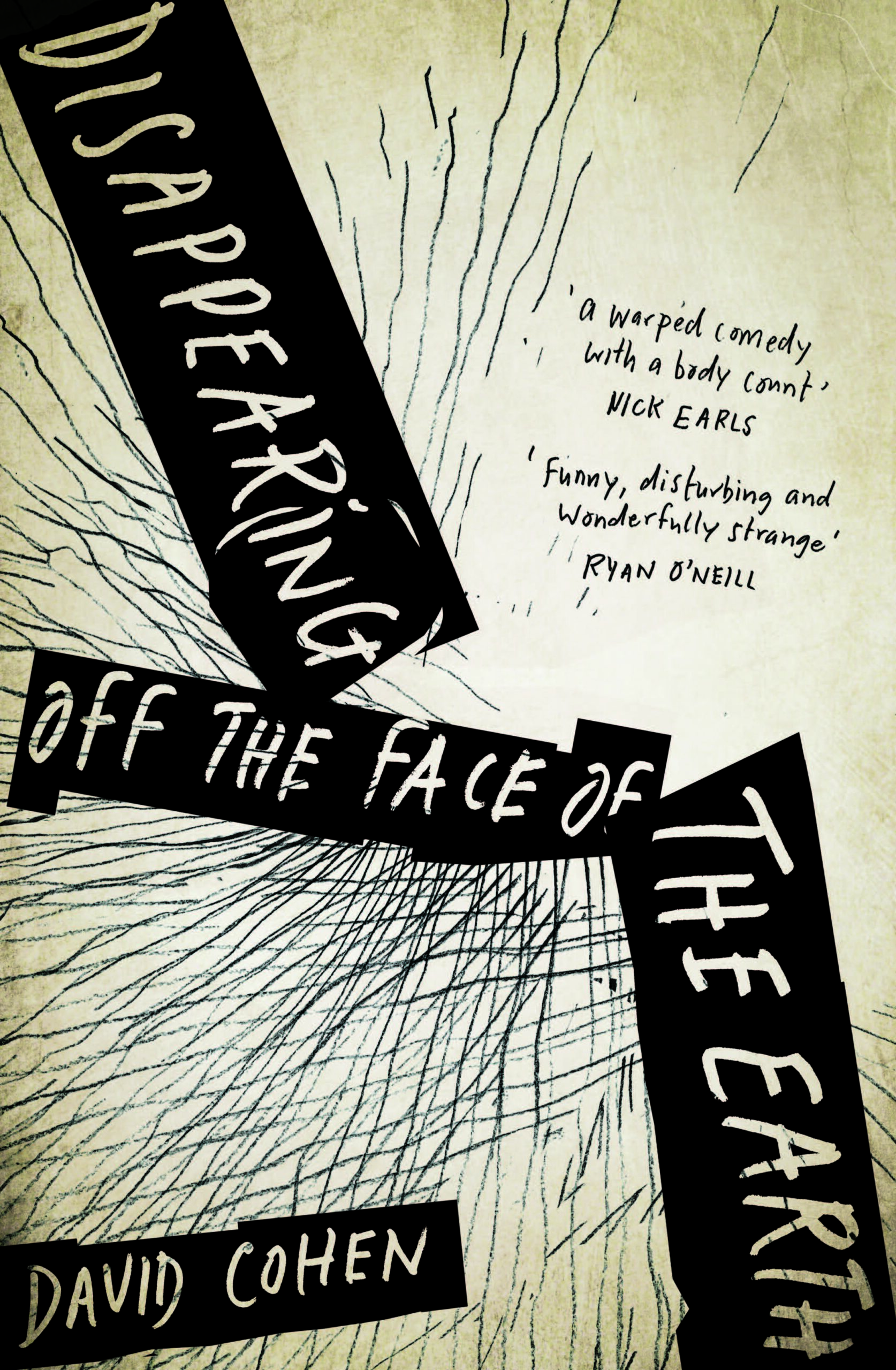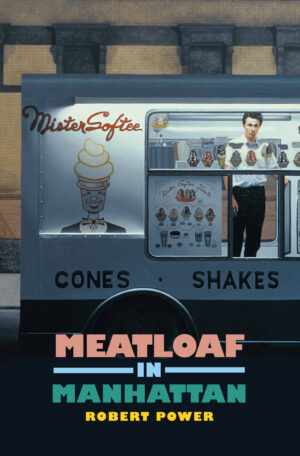This second novel from David Cohen, a well-regarded short-fiction author, concerns Ken, whose narration seems deliberately bland; he’s a bit of a no-hoper but one competent enough to have opened a depressing self-storage facility in a desolate part of Brisbane. Then there’s Bruce, whom Ken has worked with for the past five years, “a weird prick but I’d come to accept his idiosyncrasies”, including a slight proclivity for low-grade crime and a fondness for repeating characters’ names back to them (“Sorry, Ken”).
The people leasing the storage units are going missing increasingly often, a circumstance Ken and Bruce call “Disappearing Off the Face of the Earth”, a term they say they “coined” so long ago in their work life that they even use an acronym, DOTFOTE. Once renters have done this, it becomes possible to break into their storage and turn a profit from their possessions.
“Ken, people go missing all the time,” says Bruce. “It’s just one of those things.” So are characters closely linked to multiple disappearances who say lines like this, dialogue that sounds sinister and suspiciously invented. “The thing about Bruce was, 95 per cent of the time he came across as a relatively harmless, if annoying, person,” Ken tells us, “but there were moments when I sensed something else behind it all.” In the reader’s experience of Bruce, these proportions are flipped; it becomes apparent the author is trying to hide a large mystery about Bruce behind a smaller one, but between them, there are many mid-sized clues.
The book is textured with interesting ideas. Near Ken’s fairly milquetoast storage facility is the possible site of a franchise named Pharaoh’s Tomb, which does well because of its unique design – storage units that get smaller as you go from base to tip. You wonder why this hokey concept hasn’t been invented in real life; it would fit well into the dreary sections of Australia where businesses such as Ken’s often live.
When Ken is near this construction site, between warehouses and bush, “The wind blew through the wire fence, scattering the sand about and making a faint hum which, if I closed my eyes, sounded a bit like a celestial choir.” Cohen’s gift is really his treatment of the familiar …
CR, The Saturday Paper May 6, 2017
The ordinary really can become extraordinary as David Cohen reveals in his second novel, Disappearing Off the Face of the Earth. What starts out as a simple tale of suburban working life in Springwood, Brisbane, soon evolves into a compelling mystery of human disappearance and mental deterioration.
The novel centres around the character of Ken Guy, a typical, working-class man, who owns and runs Hideaway Self-Storage with the help of his assistant Bruce. Narrated by Ken, the story delves into his working world, and the slow decline of his business, as clients slowly begin to ‘disappear off the face of the earth’, defaulting on their rent and leaving behind their stored possessions. However, with these disappearances comes a silver lining, with the duo now being able to legally sell the abandoned items and make a nice supplement to their income, which just might save the business from its total demise.
Now, if there’s one thing this novel is not, it’s a straightforward, easy read, and I mean this in the best way possible. Through the use of a first-person narrator, Cohen creates a powerful filter for the events that take place, expertly crafting an enthralling novel that requires constant reader engagement.
The story is told through the first person perspective of the main protagonist, Ken, who therefore becomes the reader’s primary point of contact with the narrative world. In the beginning of the novel, the reader is not alerted to anything that would generate skepticism or create doubt towards Ken’s testimony, as he is framed as an ordinary guy in all regards. As the story progresses, though, Cohen places subtle clues in the everyday interactions of the characters, that hint at the possible unreliability of Ken as the novel’s narrator.
Increasingly, Ken’s memory begins to be questioned by other characters as he forgets important conversations and events. Whilst at first brushing things off as forgetfulness, Ken soon begins to question himself:
‘“Why don’t I remember any of this?”
Bruce smiled. “I’m afraid I can’t answer that one either, Ken. But you have been having some memory issues of late. You might want to look into that.”
I swiveled in the chair, trying hard to recall the event of that day. But my brain, that stubborn prick, refused to cooperate.’ (98)
The novel is strewn with ambiguity, leaving the reader somewhat off balance in regards to what’s real and what’s not. Characters question the narrator, the narrator questions himself, and the reader, in turn, has to question everything.
Whilst these factors indicate that something may be off kilter in the mind of the narrator, it isn’t until the closing chapters of the book that the extent of this is revealed. Triggered by flickering fluorescent lights, Ken descends into a manic argument with a voice in his head, and comes to the realisation that he has imagined the entire last part of his journey in some kind of hallucinatory vision. In the final sentences of the story, the full extent of Ken’s unhinged mind is revealed. In a scene where Bruce is supposed to be walking behind him, Cohen writes, ‘So I sat myself down on the ground not far from the side of the highway. And for the time being that’s where I would remain: a solitary figure in the landscape, thinking things over’” (218). In identifying Ken as a ‘solitary figure in the landscape’, Cohen thus reveals the illusory nature of the character of Bruce, existing only in the mind of Ken, and finally exposing the magnitude of Ken’s mental deterioration. With the full instability and unreliability of the protagonist and narrator revealed, the reader is forced to retrospectively look back across the text and review the story. Only now the significance of the subtle clues Cohen littered throughout the narrative comes to light.
One such clue is Cohen’s use of symbolism to reflect the mental deterioration of the main character. On top of the issues of memory lapses and lost time experienced by Ken, his extreme aversion to fluorescent lights also hints at some kind of mental disturbance. At multiple intervals throughout the novel the reader observes Ken’s visceral response to flickering fluorescent bulbs, which cause him excruciating headaches that leave him running from the area into the relief of darkness. The flickering lights therefore are revealed to be symbolic of Ken’s ever declining mental state throughout the narrative, and as his reactions intensify so his mental health declines.
Cohen’s choice of language throughout the novel works to hide this dark theme of mental deterioration. Cohen writes his characters with a comedic flair and colloquial tone, Ken in particular: ‘I climbed down off the ladder; that fucker of a fluoro tube remained where it was for the time being’ (147). The use of dark and cynical humor here and throughout the text work to hide the deeper themes within the narrative. By writing Ken’s dialogue as humorously contemptuous, Cohen casts a veil over the grimmer issues lurking just below the surface of the text and, in doing so, it is only at the end of the novel, when Ken’s mental state reaches a breaking point, that the reader recognises the connection between the flickering lights and Ken’s flickering mental stability.
Disappearing Off the Face of the Earth is a cleverly crafted mystery that places the reader unknowingly side-by-side a protagonist whose rapidly declining mental state creates a story clouded with confusion, uncertainty and suspicion. Cohen’s novel is both an entertaining read and an in-depth insight into the dark side of mental health and its effects on perception, personal relationships and our sense of identity and purpose.
Ali MacGregor, Westerly Magazine July 2017
Wonderfully unique, entertaining and captivating, Cohen has managed to capture a slice of life which, while darkly comical, cameos the issues that face so many of society’s members, with a rare and gentle understanding.
Janet Mawdesley, Blue Wolf Reviews, 19 May 207
http://bluewolf-reviews.com/books/humour/disappearing-off-the-face-of-the-earth/
The story behind the writing of Disappearing Off the Face of the Earth.
http://bookloverbookreviews.com/2017/05/david-cohen-shares-the-story-behind-disappearing-off-the-face-of-the-earth.html
David Cohen masterfully captures a repellent main character in this comic mystery novel.
David Cohen’s new novel has been described as ‘a warped comedy with a body count’ by Brisbane writer Nick Earls. It is set in Brisbane and is packed with Australian humour and content. The laid-back nature of the stereotypical Aussie is the basis of the story and generates most of the action.
The book is written from the perspective of Ken Guy, an unsuccessful self-storage entrepreneur who is sexist, fat-phobic, and whose sense of entitlement is through the roof. The story opens with Ken watching — and judging — his employee, Bruce, over CCTV:
‘Bruce,’ I said to the screen, ‘what the fuck are you doing?’
Bruce had worked for me for nearly five years. He was a weird prick but I’d come to accept his idiosyncrasies. Why he’d be straightening the trolleys at one o’clock on a Thursday morning was a mystery I preferred not to enquire into too deeply. The facility allowed twenty-four-hour access — each tenant had their own security code, enabling them to get to their storage unit whenever they wanted — and there was certainly no reason why Bruce, an employee, couldn’t come in and do work after office hours. If he was such a sad loser that he had nothing better to do with his time, that was his business, I wasn’t interested in Bruce’s personal life — assuming he had one.
Ken moves from judging his employee to being pleased to discover that one of his tenants has disappeared off the face of the earth and he’ll get to sell off the valuable storage items left behind for profit. Ken isn’t exactly a nice guy; in fact he’s the kind of guy who calls himself a ‘nice guy’ then complains that ‘bitches’ don’t respect him:
Ellen Kruger and I had been seeing each other for nearly five months. But then, out of the blue, just when I thought things were getting serious she cut off all contact and was now avoiding me altogether. I knew she had various emotional issues of her own to deal with, but still I was baffled by this abrupt change of heart, and she refused to explain. She wouldn’t even answer my phone calls.
It was time to drive to her house for a confrontation.
When Ellen cuts off contact with Ken he feels entitled to her attention and so refuses to accept the boundaries she has set. He goes to her home despite knowing perfectly well that he is not welcome there, and then is surprised when Ellen threatens to call the police if he does not leave. Even still he stands on her doorstep after she has closed the door and switched off the lights. Ken has little respect for the boundaries of others,
And to top it all off Ken is fat-phobic. He is constantly noticing people’s weight in excruciating detail and finding them lacking because of it. Ken doesn’t simply think of fat as a descriptor, he uses it to denote bad, lonely, inferior:
‘To some extent,’ he said, scratching his fat belly which his KISS T-shirt could no longer conceal. Then he struck his hand right down the front of his shorts, rearranging his genitals with the nonchalance you must expect of a man who spends his life alone in front of a computer.
Despite all of these obvious character faults, Ken thinks he’s someone to be envied. He is the embodiment of the concept of white male entitlement. In relation to a previous boss Ken thinks, ‘I got the impression that he, like several previous bosses, resented my intelligence.’
He follows this up with raging against being disciplined by his boss. There is no doubt that Ken was completely in the wrong and that he was spoken to fairly mildly but he still feels that he is above being called to account for his actions:
The bastard could at least have reprimanded me in private instead of making me look like a dick in front of Caitlin. Had she been ugly, or even average looking, it wouldn’t have been quite so bad but she was at least an eight and a half.
Given that the book is written in the first person from Ken’s perspective it can at times feel claustrophobic being forced to view the world through his lens. David Cohen is clearly an exceptional writer, as he captures this revolting character so perfectly that I found myself yelling at the book things like, ‘That is sexist and absurd’, and literally rolling my eyes as I read about how brilliant Ken felt he was in comparison to past bosses, his employee, and pretty much all women, who were judged by how Ken’s underpants region responded to them.
Beyond the brilliant characterisation, Cohen creates an air of mystery throughout the novel. From the disappearance of the very first customer the reader begins questioning the nature of the book. Is it a mystery where we need to find the disappearing customers by tracing their belongings? Or, since every tenant has access to Ken’s storage centre, is it a whodunnit with a mystery killer? Or is the killer someone closer to home, given that Bruce has been making late night visits? And with all the references to brain tumours and dementia, could Disappearing Off the Face of the Earth essentially be Fight Club, but bogan, and on a smaller scale?
The surprise twist is foreshadowed repeatedly, but it isn’t really a problem as the suspense is more to do with when the penny will drop rather than which way it will land. And the final scene can still be open to interpretation, although it is fairly evident what it is suggesting from all the clues heavily dropped throughout the novel.
David Cohen captures the repellent main character masterfully in this novel. It is full of vivid descriptions and laugh-out-loud moments that readers will enjoy …
Robin Elizabeth, Newtown Review of Books
http://newtownreviewofbooks.com.au/2017/06/22/crime-scene-david-cohen-disappearing-off-face-earth-reviewed-robin-elizabeth/
… This is one of the oddest books I’ve read. It is funny at times, engrossing throughout, and really quite disturbing.
Corinna Hente, Herald Sun, 27 May 2017






